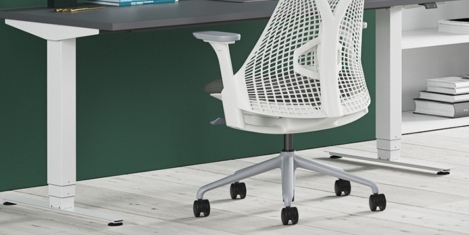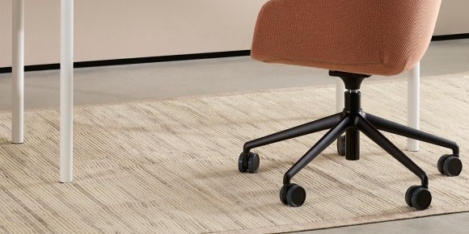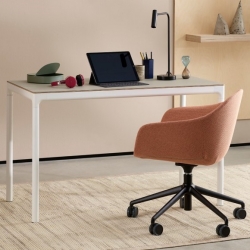November 15, 2021
Social mobility is restricted by lack of confidence and support in careers
 A new report from Totaljobs and the Social Mobility Foundation claims that the social mobility of millions of people from lower socioeconomic backgrounds is hampered by a lack of confidence in choice of career and lower levels of support from families and friends. Of those that started their first job in the last two years, only 50 percent from lower socioeconomic backgrounds said they were confident about eventually being able to do the job they want. This contrasts with the 71 percent of those from more privileged, professional backgrounds. This gap has widened since the pandemic. (more…)
A new report from Totaljobs and the Social Mobility Foundation claims that the social mobility of millions of people from lower socioeconomic backgrounds is hampered by a lack of confidence in choice of career and lower levels of support from families and friends. Of those that started their first job in the last two years, only 50 percent from lower socioeconomic backgrounds said they were confident about eventually being able to do the job they want. This contrasts with the 71 percent of those from more privileged, professional backgrounds. This gap has widened since the pandemic. (more…)







 A new
A new 
 A total of 2.99 million recent job seekers over 50 (52 percent) believe their age has made employers less likely to hire them, according to a new report from
A total of 2.99 million recent job seekers over 50 (52 percent) believe their age has made employers less likely to hire them, according to a new report from 
 One in five employers (22 percent) have made changes to employees’ terms and conditions of employment between March 2020 and July 2021, according to new research from the
One in five employers (22 percent) have made changes to employees’ terms and conditions of employment between March 2020 and July 2021, according to new research from the 
 The CIPD has welcomed a new consultation from the UK Government on making flexible working requests a day one right. The CIPD launched its #FlexFrom1st campaign in February, calling for all employees to have the immediate right to request flexible working. Under the proposed legislation, companies would be obliged to explain their reasons if it is then refused. The plan would also oblige employers to respond to such requests more quickly, and is being billed as a major reshaping of the way people work in a post-pandemic world, making flexible work the default.
The CIPD has welcomed a new consultation from the UK Government on making flexible working requests a day one right. The CIPD launched its #FlexFrom1st campaign in February, calling for all employees to have the immediate right to request flexible working. Under the proposed legislation, companies would be obliged to explain their reasons if it is then refused. The plan would also oblige employers to respond to such requests more quickly, and is being billed as a major reshaping of the way people work in a post-pandemic world, making flexible work the default. 
 Scotland is to become the latest nation to trial a
Scotland is to become the latest nation to trial a 
 New research into workplace discrimination, commissioned by
New research into workplace discrimination, commissioned by 
 New ways of working will boost UK productivity and increase employment levels in cities outside of London, according to a new report from KPMG. And as businesses in some sectors prepare for employees to spend two to three days a week working from home on a permanent basis, demand for office space could see capacity potentially increase by as much as 40 percent, according to a new KPMG report,
New ways of working will boost UK productivity and increase employment levels in cities outside of London, according to a new report from KPMG. And as businesses in some sectors prepare for employees to spend two to three days a week working from home on a permanent basis, demand for office space could see capacity potentially increase by as much as 40 percent, according to a new KPMG report, 
 Workloads, profit margins and employment opportunities are set to continue to grow for the year ahead due to increasing demand for facilities management services, according to the latest
Workloads, profit margins and employment opportunities are set to continue to grow for the year ahead due to increasing demand for facilities management services, according to the latest 
 The proportion of people over 50 in employment is set to hit 47 percent by 2030, following a 36 percent increase in the absolute number the last two decades, according to a new report from
The proportion of people over 50 in employment is set to hit 47 percent by 2030, following a 36 percent increase in the absolute number the last two decades, according to a new report from 
 We’ve all learnt a great deal about working from home over the past eighteen months. We’ve seen how for some, it can be incredibly beneficial to employees, enabling them to better balance their work and personal lives and can also benefit the company, enabling business as usual during the Covid-19 pandemic, even improving efficiency. It’s also prompted some important conversations about mental health that simply hadn’t been had, normalising the challenges that we all face, especially during lockdowns.
We’ve all learnt a great deal about working from home over the past eighteen months. We’ve seen how for some, it can be incredibly beneficial to employees, enabling them to better balance their work and personal lives and can also benefit the company, enabling business as usual during the Covid-19 pandemic, even improving efficiency. It’s also prompted some important conversations about mental health that simply hadn’t been had, normalising the challenges that we all face, especially during lockdowns. 








October 25, 2021
The power of science can help companies create better menopause policies
by Gosia Bowling • Comment, Wellbeing